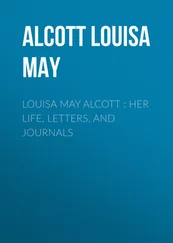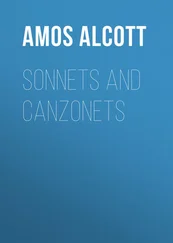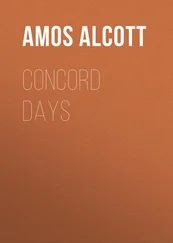Amos Alcott - Tablets
Здесь есть возможность читать онлайн «Amos Alcott - Tablets» — ознакомительный отрывок электронной книги совершенно бесплатно, а после прочтения отрывка купить полную версию. В некоторых случаях можно слушать аудио, скачать через торрент в формате fb2 и присутствует краткое содержание. ISBN: , Жанр: foreign_antique, foreign_prose, на английском языке. Описание произведения, (предисловие) а так же отзывы посетителей доступны на портале библиотеки ЛибКат.
- Название:Tablets
- Автор:
- Жанр:
- Год:неизвестен
- ISBN:http://www.gutenberg.org/ebooks/36825
- Рейтинг книги:4 / 5. Голосов: 1
-
Избранное:Добавить в избранное
- Отзывы:
-
Ваша оценка:
- 80
- 1
- 2
- 3
- 4
- 5
Tablets: краткое содержание, описание и аннотация
Предлагаем к чтению аннотацию, описание, краткое содержание или предисловие (зависит от того, что написал сам автор книги «Tablets»). Если вы не нашли необходимую информацию о книге — напишите в комментариях, мы постараемся отыскать её.
Tablets — читать онлайн ознакомительный отрывок
Ниже представлен текст книги, разбитый по страницам. Система сохранения места последней прочитанной страницы, позволяет с удобством читать онлайн бесплатно книгу «Tablets», без необходимости каждый раз заново искать на чём Вы остановились. Поставьте закладку, и сможете в любой момент перейти на страницу, на которой закончили чтение.
Интервал:
Закладка:
"Time may come when man
With angels may participate and find
No inconvenient diet, no too light fare,
And, from these corporal nutriments, perhaps,
Their bodies may at last turn all to Spirit
Improved by tract of time, and winged ascend
Ethereal as they; or may at choice
Here, or in heavenly Paradises, dwell."
An elegant abstinence is complimentary to any one, as, fed from the virgin essences of the season, his genius, dispositions, tastes, have no shame to blush for, and modestly claim the honor of being well bred. And one's table, like Apelles', may be fitly pictured with the beauty of sobriety on the one side, the deformity of excess on the other, the feast substantial as it is lyrical, praising itself and those who partake; and his guests as ready to compliment him, as Timotheus did Plato, when he said: "They who dine with the philosopher never complain the next morning."
Takes sunbeams, spring waters,
Earth's juices, meads' creams,
Bathes in floods of sweet ethers,
Comes baptized from the streams;
Guest of Him, the sweet-lipp'd,
The Dreamer's quaint dreams.
Mingles morals idyllic
With Samian fable,
Sage seasoned from cruets,
Of Plutarch's chaste table.
Pledges Zeus, Zoroaster,
Tastes Cana's glad cheer,
Suns, globes, on his trencher,
The elements there.
Bowls of sunrise for breakfast
Brimful of the East,
Foaming flagons of frolic
His evening's gay feast.
Sov'reign solids of nature,
Solar seeds of the sphere,
Olympian viand
Surprising as rare.
Thus baiting his genius,
His wonderful word
Brings poets and sibyls
To sup at his board.
Feeds thus and thus fares he,
Speeds thus and thus cares he,
Thus faces and graces
Life's long euthanasies,
His gifts unabated,
Transfigured, translated —
The idealist prudent,
Saint, poet, priest, student,
Philosopher, he.
" – Much will always wanting be
To him who much desires. Thrice happy he
To whom the indulgency of heaven,
With sparing hand, but just enough has given."
Life, when hospitably taken, is a simple affair. Very little suffices to enrich us. Being, a fountain and fireside, a web of cloth, a garden, a few friends, and good books, a chosen task, health and peace of mind – these are a competent estate, embracing all we need.
"Like to one's fortune should be his expense,
Men's fortunes rightly held in reverence."
The country opens the best advantages for these enjoyments. And where one has the privilege of choosing for himself, he prefers the scope for seclusion and society that a homestead implies. For his human satisfactions, he draws upon his dispositions and gifts. His appetites he willingly digs for, nor cares to cherish any that he is ashamed to own. For nobler pleasures he delights to climb. His best estate is in himself. He needs little beside. With good sense for his main portion to make the most of that little, he may well consider Hesiod's opinion of weight:
"The half is better far than whole."
If his house is an ancient one, or ancestral, by so much the stronger are the ties that bind his affections to it; especially if it stand in an orchard, and have a good garden. Even if inconvenient in some respects, he will hesitate about pulling it down in hopes of pleasing himself better in a new one. The genius that repairs an old house successfully may fail in building another. Besides, there were many comforts provided for by our ancestors, who were old Englishmen even here in New England, and knew well what a house was built for, and they built for that, against any odds of counsel or expense. Then 'tis fatal to take time out of a building, which so consecrates it.
An old house, well built, pleases more with the repairs rendered necessary than a costlier new one. There are good points about it which have been proved by a century or two, and these may be adopted as parts for preserving, while any additions may be made for holding the whole in keeping with the orignal design, or as improvements on it. Perhaps there are snug recesses, and window-seats, spacious entries, hospitable stairways, wainscoting, finished summers running across the ceilings, a dry cellar, a good well, fence rows in natural places, shrubbery, which if not well set can be reset in the grounds; an orchard and garden whose mould is infused with the genius of years and humanized for culture. Then the tenement has its genealogy, and belongs to the race who have built into it a history. Trees, too, venerable with age it has, or it could not have been the residence of gentlemen. Outbuildings of any kind, useful or ornamental, have found their proper sites, and meet the eye as if they had always been there. It takes some generations to complete and harmonize any place with the laws of beauty, as these best honor themselves in that fairest of structures, a human mansion; which, next to its occupant, is the noblest symbol of the mind that art can render to the senses. One may spend largely upon it, if he have not ousted his manliness in amassing the money. That is an honest house which has the owner's honor built into its apartments, and whose appointments are his proper ornaments.
Building is a severe schoolmaster, and gets the best and worst out of us, both, before it has done with us. I conclude no man knows himself on terms cheaper than the building of one house at least, and paying for it out of his pains. The proverb says:
"'Tis a sweet impoverishment, and a great waste of gall."
Do we not build ourselves into its foundations, to stand or fall with its beams and rafters, every nail being driven in trouble from sills to roof-tree, and the whole proving often a defeat and disappointment: no one liking it, the builder least of all? One may thank heaven, and not himself, if he do not find
He builded costlier than he knew,
Unhoused himself and virtues too,
at the dismission of his carpenters, and occupancy of it. Perhaps the idea of a house is too precious to be cut into shapes of comfort and comeliness on cheaper conditions than this trial of his manliness by the payment of his equanimity as the fair equivalent for the privilege. Nor is this the end of the matter, since it costs many virtues to deal dutifully by his household, by servants – if served by second hands – day by day, and come forth from the stewardship with credit and self-respect.
But a garden is a feasible matter. 'Tis within the means of almost every one; none, or next to none, are so destitute, or indifferent, as to be without one. It may be the smallest conceivable, a flower bed only, yet is prized none the less for that. It is loved all the more for its smallness, and the better cared for. Virgil advises to
– "Commend large fields,
But cultivate small ones."
And it was a saying of the Carthaginians, that "the land should be weaker than the husbandman, since of necessity he must wrestle with it, and if the ground prevailed, the owner must be crushed by it." The little is much to the frugal and industrious; and the least most to him who puts that little to loving usury.
"We are the farmers of ourselves, yet may
If we can stock ourselves and thrive, repay
Much, much good treasure for the great rent day."
'Tis a pity that men want eyes, oftentimes, to harvest crops from their acres never served to them from their trenchers. Civilization has not meliorated mankind essentially while men hold themselves to services they make menial and degrading. Æleas, king of Scythia, was wont to say ingeniously, that "while he was doing nothing, he differed in nothing from his groom," thus discriminating between services proper to freemen and slaves. The humblest labors may ennoble us. Honorable in themselves when properly undertaken, they promote us from things to persons. They give us the essential goods of existence as we deserve and can best enjoy them: order, namely, industry, leisure, of which idleness defrauds, and distraction deprives us. Labor suffices. Putting us, for the time, beyond anxiety and our caprices, it calls into exercise the sentiments proper to the citizen. It softens and humanizes other pleasures. Like philosophy, like religion, it revenges on fortune, and so keeps us by the One amidst the multitude of our perplexities – against reverses, and above want. By making us a party in the administration of affairs, and superior to Fate, it puts into our hands the iron keys for unlocking her wards, and thus gives us to opulence and independence. We become, thereby, the subjects and friends of Saturn, ever known to be a person of so strict justice as he forces none to serve him unwillingly, and has nothing private to himself, but all things in common, as of one universal patrimony. And so, owning nothing, because wanting nothing, he had all things desirable to make life rich and illustrious.
Читать дальшеИнтервал:
Закладка:
Похожие книги на «Tablets»
Представляем Вашему вниманию похожие книги на «Tablets» списком для выбора. Мы отобрали схожую по названию и смыслу литературу в надежде предоставить читателям больше вариантов отыскать новые, интересные, ещё непрочитанные произведения.
Обсуждение, отзывы о книге «Tablets» и просто собственные мнения читателей. Оставьте ваши комментарии, напишите, что Вы думаете о произведении, его смысле или главных героях. Укажите что конкретно понравилось, а что нет, и почему Вы так считаете.












